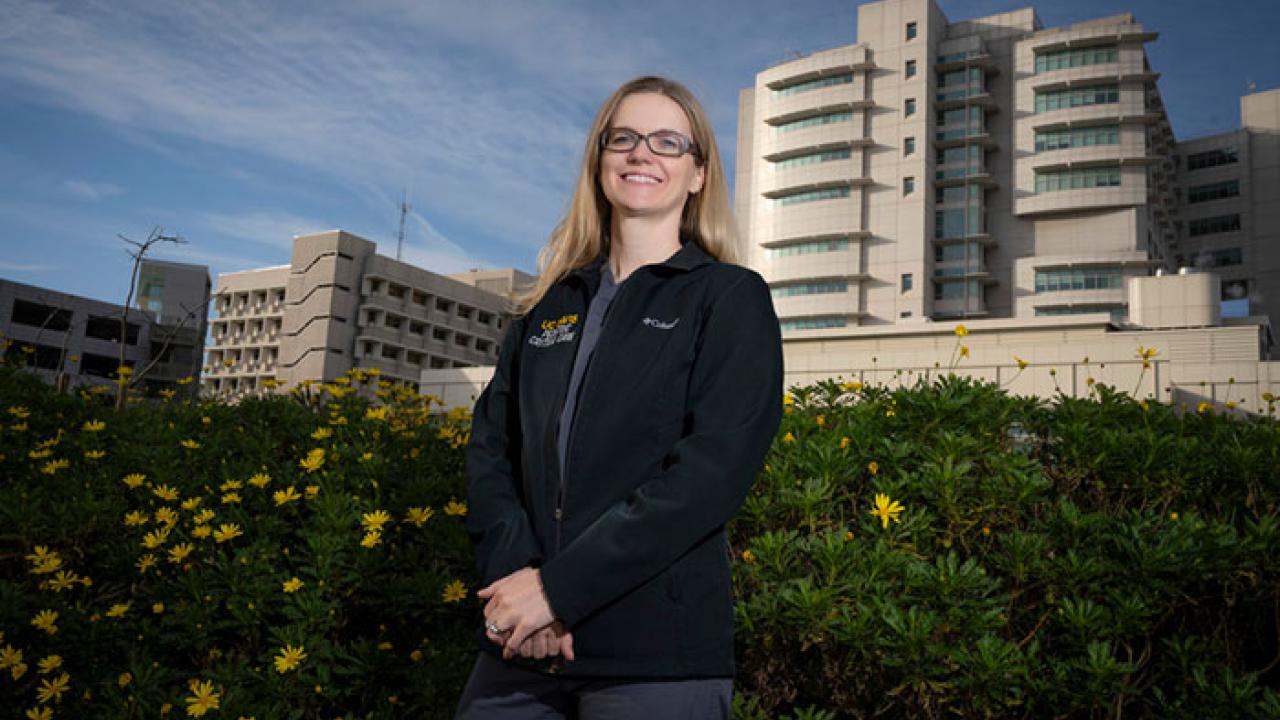During the 2020-21 fiscal year, nine startups executed agreements to access foundational intellectual property and commercialize new technologies developed at the University of California, Davis.
The emerging startups are focused on technological solutions to meet needs in health, energy and agriculture.
“It is always exciting to see innovations from UC Davis translated into commercial applications that benefit our regional economy and society at large,” said Prasant Mohapatra, vice chancellor for research at UC Davis. “Innovations from UC Davis and other universities across the globe play an instrumental role in developing new technology that fuels the products and services of tomorrow.”
One of the startups, Innate Biology, is commercializing supplements that may allow a consumer to enjoy the same cellular benefits that one gets from fasting, without having to fast. Co-founded by Angela Zivkovic, associate professor in the Department of Nutrition, the company participated in the IndieBio accelerator to advance their patent-pending fasting mimetic formulation focused on healthy living and longevity.
RePurpose Energy, a clean energy startup co-founded by Jae Wan Park, associate professor in the Department of Mechanical and Aerospace Engineering, is developing energy storage technology to help California meet its sustainable energy goals. The startup gives a new life to used batteries from electric vehicles to provide energy storage systems with various applications, such as solar power. The team recently secured a Phase I NSF SBIR grant and won a Caltech Rocket Fund grant.
NeoPOSE, founded by Heather Siefkes, assistant professor of pediatric critical care at UC Davis Children’s Hospital, is developing a new technology that could improve the detection of congenital heart defects in newborns. In 2020, Siefkes received internal funding through a proof-of-concept grant from the Venture Catalyst Data, Informatics and Application Launch, or DIAL, program to advance the technology towards commercialization.
“Building a new startup to commercialize an early-stage technology is difficult in normal conditions, but doing so during the constraints from the pandemic illustrates the resolve and passion of these entrepreneurs,” said Ryan Sharp, director, Venture Catalyst. “We are excited to see these startups advance new technologies toward commercial products that will benefit society and are pleased to provide assistance to them along the way.”
Additional companies that executed agreements to access foundational intellectual property from UC Davis during the 2020-21 fiscal year are highlighted below. Two companies have chosen to remain in “stealth mode” for competitive reasons and are not listed.
- InVixa – Co-founded by Amir A. Zeki, assistant professor in the Division of Pulmonary, Critical Care and Sleep Medicine, the company’s technology is based on a novel method using inhaled statins to treat severe respiratory disease associated with COVID-19.
- MILO – Machine Intelligence Learning Optimizer – Co-founded by Hooman Rashidi, professor in the Department of Pathology and Laboratory Medicine, the company has developed a turnkey software tool that provides a fully automated machine learning solution for many different research and business needs.
- Ohalo Genetics – This startup is dedicated to reimagining the art and science of plant breeding through the interplay of molecular breeding and quantitative genetics.
- VasoBio – Co-founded by Aijun Wang, professor in the Department of Biomedical Engineering, this biotech startup is developing a novel coating technology to functionalize vascular grafts that will provide resistance to thrombosis, infection and blood clotting.
Fueling innovation and entrepreneurship
In order to facilitate the successful translation of research into commercial practice, the UC Davis Office of Research in 2013 launched Venture Catalyst, a unit within the Innovation and Technology Commercialization division. Venture Catalyst offers several innovative programs that bridge the gap between early-stage research and commercialization by enabling and supporting robust university startups and spin-outs. Over the past fiscal year Venture Catalyst assisted 24 new startups with 32 university-associated team members. Startups that Venture Catalyst has assisted through its range of programs raised approximately $223 million in funding during the 2020-21 fiscal year period.
Milestones for previous startups
In the last 10 years, a total of 119 startups rose from the UC Davis research community with support from Venture Catalyst. Approximately 73% are active today.
- Shasqi, a clinical stage biotechnology startup that enables patients to beat cancer while decreasing toxicity has been awarded a Direct-to-Phase-2 Small Business Innovation Research Grant by National Cancer Institute.
- Bouncer Technologies, a startup that uses machine learning to detect fraudulent cards, transactions and phones has been acquired by Stripe, a global technology company that builds economic infrastructure for the internet.
- Evolve Biosystems, founded by UC Davis scientists, is dedicated to developing the next generation of products to establish, restore and maintain a healthy newborn gut microbiome. The company recently closed a round of financing that will enable them to improve the health of infants worldwide.
Media Resources
UC Davis Office of Research: Innovation and Technology Commercialization
Media Contacts:
- AJ Cheline, Office of Research, 530-752-1101, acheline@ucdavis.edu
- Andy Fell, News and Media Relations, 530-304-8888, ahfell@ucdavis.edu
